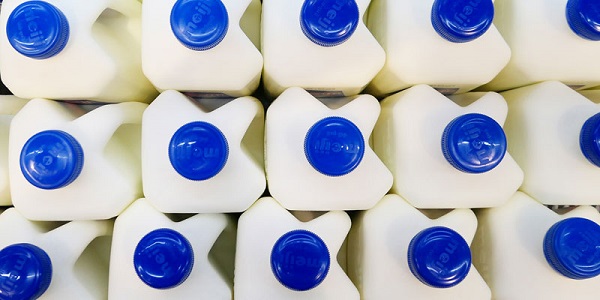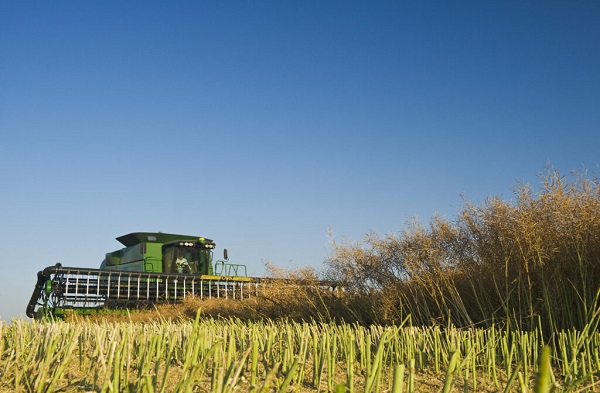Agriculture
Red Deer based Peavey Industries buys Ace hardware, Ace Country & Garden, and Ace Building Centre from Rona

From Peavey Industries LP
Peavey Industries LP acquires the main license of Ace brand in Canada.
Peavey Industries LP, Canada’s largest farm and ranch retailer is proud to announce the acquisition of Ace Canada and is very pleased to welcome the “helpful hardware” chain to our retail family.
The Ace Canada brand consists of a total 107 stores under Ace Hardware, Ace Country & Garden or Ace Building Centre banners. These stores will all continue to operate under their existing banners and as such, customers can expect to see minimal changes to the high standard of service and products they have come to expect.
Ace International is working closely with Peavey Industries to ensure the least amount of disruption to the Ace dealer network throughout this transition. Jay Heubner, Ace International President and GM, had this to say in response to the Peavey Industries purchase:
“This is an exciting new chapter for Ace International and the Canadian Ace Hardware retailers. We are thrilled to team up with Peavey Industries, an organization that shares our values and has a strong commitment to service and community. We’re confident Peavey Industries will provide the independent Ace retailers the best service and support to help them succeed and ensure the continued growth of the Ace Hardware brand in Canada.” – Jay Heubner
Supporting three retail brands with a total of 92 stores across five provinces, Peavey Industries LP’s corporate head office is located in Red Deer, Alberta with a regional office in London, Ontario. Both locations house large-scale distribution centres executing west and east fulfillment. Proudly 100% Canadian and employee owned, Peavey Industries retail outlets have been serving their loyal customers since 1967.
As a former corporate culture award recipient, Peavey Industries views the responsibility, consideration and respect afforded to both our staff and customers as our highest priority. We are dedicated to serving our rural customers and communities across Canada and, in line with our national growth strategy, this acquisition helps us to expand our network.
Peavey Industries understands Canadian communities; we look forward to building on our strong community relationships and service to our loyal customers.

President and CEO, Doug Anderson feels Ace Canada’s aspirations parallel ours:
“Ace Canada is a natural extension to Peavey Industries for a number of reasons: we relate strongly to their dedication to ‘local and loyal’, we appreciate their commitment to providing value to customers and we mirror their devotion to excellence in customer service. Also, it is a great opportunity for us to serve new markets with the addition of this great brand.” – Doug Anderson
Agriculture
Ottawa may soon pass ‘supply management’ law to effectively maintain inflated dairy prices

From the Fraser Institute
Many Canadians today face an unsettling reality. While Canada has long been known as a land of plenty, rising living costs and food insecurity are becoming increasingly common concerns. And a piece of federal legislation—which may soon become law—threatens to make the situation even worse.
According to Statistics Canada, rising prices are now “greatly affecting” nearly half of Canadians who are subsequently struggling to cover basic living costs. Even more alarming, 53 per cent are worried about feeding their families. For policymakers, few national priorities are more pressing than the ability of Canadians to feed themselves.
Between 2020 and 2023, food prices surged by 24 per cent, outpacing the overall inflation rate of 15 per cent. Over the past year, more than one million people visited Ontario food banks—a 25 per cent increase from the previous year.
Amid this crisis, a recent academic report highlighted an unforgivable waste. Since 2012, Canada’s dairy system has discarded 6.8 billion litres of milk—worth about $15 billion. This is not just mismanagement, it’s a policy failure. And inexcusably, the federal government knows how to address rising prices on key food staples but instead turns a blind eye.
Canada’s dairy sector operates under a “supply management” system that controls production through quotas and restricts imports via tariffs. Marketing boards work within this system to manage distribution and set the prices farmers receive. Together, these mechanisms effectively limit competition from both domestic and foreign producers.
This rigid regulated system suppresses competition and efficiency—both are essential for lower prices. Hardest hit are low-income Canadians as they spend a greater share of their income on essentials such as groceries. One estimate ranks Canada as having the sixth-highest milk prices worldwide.
The price gap between the United States and Canada for one litre of milk is around C$1.57. A simple calculation shows that if we could reduce the price gap by half, to $0.79, Canadians would save nearly $1.9 billion annually. And eliminating the price gap would save a family of four $360 a year. There would be further savings if the government also liberalized markets for other dairy products such as cheese, butter and yogurt. These lower costs would make a real difference for millions of Canadians.
Which brings us back to the legislation pending on Parliament Hill. Instead of addressing the high food costs, Ottawa is moving in the opposite direction. Bill C-282, sponsored by the Bloc Quebecois, has passed the House of Commons and is now before the Senate. If enacted, it would stop Canadian trade negotiators from letting other countries sell more supply-managed products in Canada as part of any future trade deal, effectively increasing protection for Canadian industries and creating another legal barrier to reform. While the governing Liberals hold ultimate responsibility for this bill, all parties to some degree support it.
Supply management is already causing trade friction. The U.S. and New Zealand have filed disputes (under the Canada-United States-Mexico Agreement and the Comprehensive and Progressive Agreement for Trans-Pacific Partnership) accusing Canada of failing to meet its commitments on dairy products. If Canada is found in violation, it could face tariffs or other trade restrictions in unrelated sectors. Dairy was also a sticking point in negotiations with the United Kingdom, leading the British to suspend talks on a free trade deal. The costs of defending supply management could ripple farther than agriculture, hurting other Canadian businesses and driving up consumer costs.
Dairy farmers, of course, have invested heavily in the system, and change could be financially painful. Industry groups including the Dairy Farmers of Canada carry significant political influence, especially in Ontario and Quebec, making it politically costly for any party to propose reforms. The concerns of farmers are valid and must be addressed—but they should not stand in the way of opening up these heavily regulated agricultural sectors. With reasonable financial assistance, a gradual transition could ease the burden. After all, New Zealand, with just 5 million people, managed to deregulate its dairy sector and now exports 95 per cent of its milk to 130 countries. There’s no reason Canada could not do something similar.
Bill C-282 is a flawed piece of legislation. Supply management already hurts the most vulnerable Canadians and is the root cause of two trade disputes that threaten harm to other Canadian industries. If passed, this law will further tie the government’s hands in negotiating future free trade agreements. So, who benefits from it? Certainly not Canadians struggling with food insecurity. The government’s refusal to modernize an outdated inefficient system forces Canadians to pay more for basic food staples. If we continue down this path, the economic damage could spread to other sectors, leaving Canadians to bear an ever-increasing financial burden.
Author:
Agriculture
2024 harvest wrap-up: Minister Sigurdson

As the 2024 growing season comes to a close, Minister of Agriculture and Irrigation RJ Sigurdson issued the following statement:
“While many Albertans were enjoying beautiful fall days with above-average temperatures, farmers were working around the clock to get crops off their fields before the weather turned. I commend their continued dedication to growing quality crops, putting food on tables across the province and around the world.
“Favourable weather conditions in August and early September allowed for a rapid start to harvest, leading to quick and efficient completion.
“The final yield estimates show that while the South, North West and Peace regions were slightly above average, the yields in the Central and North East regions were below average.
“Crop quality for oats and dry peas is currently exceeding the five-year average, with a higher rate of these crops grading in the top two grade categories. In contrast, spring wheat, durum, barley and canola are all grading in the top two grades at rates lower than the five-year average.
“Crop grading is a process that determines the quality of a grain crop based on visual inspection and instrument analysis. Factors like frost damage, colour, moisture content and sprouting all impact grade and affect how the grain will perform during processing or how the end product will turn out. Alberta generally produces high-quality crops.
“Farmers faced many challenges over the last few years and, for some areas of the province, 2024 was a difficult growing season. But Alberta producers are innovative and resilient. They work constantly to meet challenges head-on and drive sustainable growth in our agricultural sector.
“Alberta farmers help feed the world, and I’m proud of the reputation for safe, high-quality agricultural products that this industry has built for itself. Thank you to our producers, and congratulations on another successful harvest!”
-

 John Stossel2 days ago
John Stossel2 days agoGreen Energy Needs Minerals, Yet America Blocks New Mines
-

 Daily Caller2 days ago
Daily Caller2 days agoLos Angeles Passes ‘Sanctuary City’ Ordinance In Wake Of Trump’s Deportation Plan
-

 Alberta2 days ago
Alberta2 days agoProvince considering new Red Deer River reservoir east of Red Deer
-

 Addictions2 days ago
Addictions2 days agoBC Addictions Expert Questions Ties Between Safer Supply Advocates and For-Profit Companies
-

 Aristotle Foundation2 days ago
Aristotle Foundation2 days agoToronto cancels history, again: The irony and injustice of renaming Yonge-Dundas Square to Sankofa Square
-

 Business23 hours ago
Business23 hours agoCBC’s business model is trapped in a very dark place
-

 conflict2 days ago
conflict2 days agoUS and UK authorize missile strikes into Russia, but are we really in danger of World War III?
-

 armed forces1 day ago
armed forces1 day agoJudge dismisses Canadian military personnel’s lawsuit against COVID shot mandate





